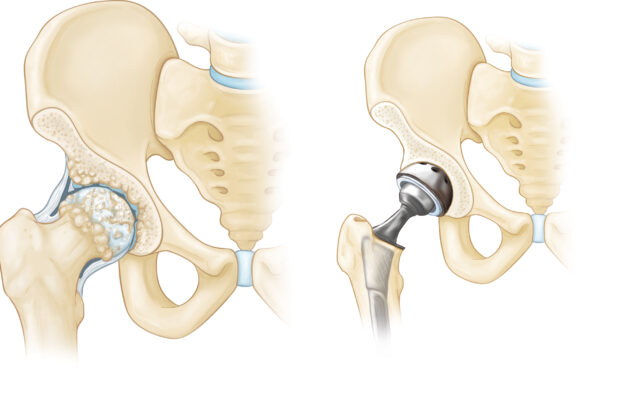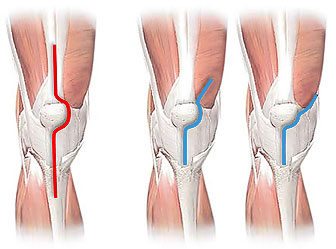Knee pain is a very common problem that can occur in people of all ages. Knee pain can be mild or severe. In some people, it is so severe that it restricts your daily movements and you are not able to do your daily tasks. One may experience knee pain that is either temporary or chronic. Temporary knee pain is for short duration of time and it may be the result of an injury or accident that has happened with you. You may or may not require treatment for temporary knee pain. Chronic knee pain is accompanied by swelling or sensitivity in one knee or both the knees. It usually requires treatment and can occur due to numerous reasons.

Various causes of knee pain include:
Injuries – When a knee injury occurs, it can damage the ligaments, tendons and fluid-filled sacs surrounding the knee joint resulting in pain in your knees. There are a number of knee injuries that can occur in a person, namely:
ACL injury: In this type of injury, Anterior cruciate ligament (ACL) is torn and this usually happens in people playing basketball, soccer or other sports where one changes his direction suddenly.
Fracture: Fractures occur when a person’s knee bones break due to some motor vehicle accident or falls. It can also happen in people suffering from osteoporosis where just a simple wrong step can cause severe damage to knee joint.
Torn meniscus: Meniscus acts as a shock absorber between your shin bone and thigh bone. It may tear if a person is bearing weight on his knee and suddenly twists it.
Knee bursitis: Burase are small sacs of fluids that surround your knee joint. These sacs may get inflamed due to an injury resulting in knee pain.
Patellar tendinitis: One may experience inflammation of tendons especially while running, cycling or doing jumping sports.
Arthritis: There are different types of arthritis that can affect your knee joint and cause severe pain in them such as osteoarthritis, rheumatoid arthritis, gout, pseudogout and septic arthritis.
Mechanical problems that can cause knee pain: Loose body, lliotibial band syndrome, dislocated knee cap and hip/foot pain.
It is important that you make a visit to your doctor if your knee pain persists for a longer time because it will not go away without treatment. Your doctor may recommend physical therapy, medications, injection or surgery to relieve the patient from knee pain. Always refer to a well-qualified, experienced and skilled doctor only so that you get positive outcomes.



